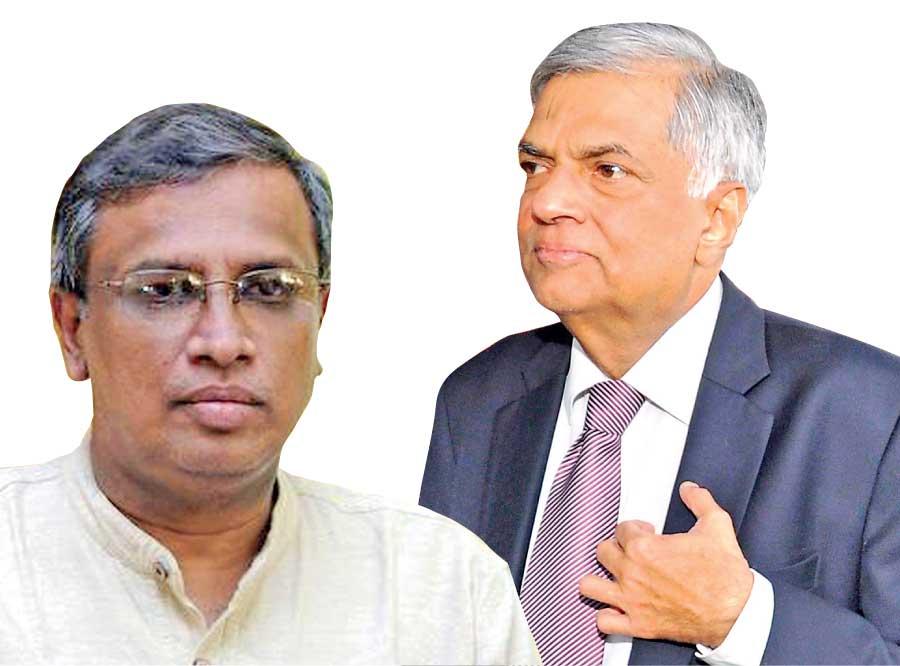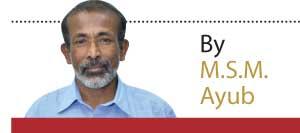23 Dec 2022 - {{hitsCtrl.values.hits}}

President Ranil Wickremesinghe has proposed to all political parties in Parliament to get together to find a solution to the decades-old ethnic problem before Sri Lanka’s 75th Independence Day which falls on February 4 next year.
Independence Day which falls on February 4 next year.
Interestingly, Tamil political parties based in the Northern Province while commending the President for his overture have demanded him to fulfil the three requests they have put forward, before January 31, four days before his deadline.
The President during the budget debate in Parliament stated that he wished to find a lasting solution to the ethnic problem and called on the political parties representing the Parliament to get together in this endeavour. He also gave the undertaking to meet the parties after the budget is passed. He had convened an all-party meeting on December 13 accordingly.
The leader of the Pivithuru Hela Urumaya, Udaya Gammanpila says President Wickremesinghe is going to solve within 40 days a problem which is more than 40 years old. (In fact, the president is attempting to do so in about 50 days from December 13.)
The leader of the Pivithuru Hela Urumaya, Udaya Gammanpila says President Wickremesinghe is going to solve within 40 days a problem which is more than 40 years old.
On the same day, before the meeting with the President was held, the North-based Tamil parties had decided during a meeting among them to place three demands before the President setting January 31 as an ultimatum for them to be met.
Firstly, to stop land grabs in the Northern and Eastern Provinces by the armed forces and the state institutions while releasing all lands so acquired earlier by them in those two provinces, secondly, to hold the provincial council elections forthwith after implementing all provisions in the Constitutions and other laws in respect of power devolution and thirdly, to implement power devolution under a federal framework through a new Constitution are the three demands.
The professed intention of both sides seems to be good. Despite the question remaining whether resolving the ethnic issue within about 40 days is realistic, nobody can blame the President for such an intention. Tamil parties, similarly have the right to assume that a common stand on federalism could be achieved within the same period even though it has been the focal point of a debate since the 1940s.
The Tamil National Alliance (TNA) spokesman and Parliamentarian M.A. Sumanthiran stated that the issue could be resolved within a day if all stakeholders made a genuine effort, as every aspect of the problem has been discussed over the years. True, that would be a valid point only with the condition he laid down with it; “if all stakeholders made a genuine effort.”
If the Tamil leaders are concerned about the private lands in the two provinces that have been occupied by the armed forces during the war between them and the Liberation Tigers of Tamil Eelam (LTTE), that could be resolved with a stroke of a pen by the President. They must be returned to their legitimate owners. However, it is not illegal for the armed forces and the state institutions to use state lands wherever in the country, if proper procedures are followed.
A provincial police division has to be created under a Deputy Inspector General of police to grant police powers to provincial councils. And the types of weapons that are assigned to that division have also to be decided. During the war, the concern was that the provincial police force might side with the Tamil rebels, but the possibility of the LTTE being revived or another Tamil armed group emerging from among the youth in the north and the east is extremely remote.
Their second demand - to hold the provincial council elections forthwith after implementing all provisions in the Constitutions and other laws in respect of power devolution - in fact, legitimate, since they are requesting what is in the book. It is a well-known fact that the Constitutional provisions on provincial councils are not implemented. Especially, the mechanism for the implementation of land and police powers which have been devolved under the 13th Amendment to the Constitution has not been created yet, even 34 years after that amendment was passed.
A provincial police division has to be created under a Deputy Inspector General of police to grant police powers to provincial councils. And the types of weapons that are assigned to that division have also to be decided. During the war, the concern was that the provincial police force might side with the Tamil rebels, but the possibility of the LTTE being revived or another Tamil armed group emerging from among the youth in the north and the east is extremely remote.
Even Ven. Athureliye Rathana Thera during the inaugural meeting of his Sri Lanka National Council (SLNC) on February 28, 2017, told in the presence of the then President Maithripala Sirisena that police and land powers should be granted to the provincial councils, now that the war is over. Interestingly, he was then a Member of Parliament representing Jathika Hela Urumaya (JHU) and no protesting voices were heard against his suggestion.
The 13th Amendment requires a Land Commission in order to practically grant land powers to provincial councils. Despite the land has historically been a sensitive issue, the Supreme Court has allayed much of the fears that were instilled in the minds of the Sinhalese by a ruling given in 2013. Overturning two previous rulings by Chief Justices Sarath N Silva and Shirani Banadaranayake, Chief Justice Mohan Peiris ruled on September 26, 2013, that land was vested in the people or the Central Government to be bequeathed or divested to the provincial councils, at their request and according to law.
Chandrika Kumaratunge when she was the Chief Minister of Western Province had been championing the idea of granting police and land powers to provincial councils and was blaming previous and then Presidents for not issuing the relevant gazette notifications. Ironically, she too was not prepared to issue those gazettes during her subsequent two consecutive tenures as President since 1994.
Making demand to President Ranil Wickremesinghe to hold provincial council elections is interestingly appropriate, as it was his government’s actions that deferred the provincial council elections indefinitely in 2017. His government then in a controversial manner introduced a mixed electoral system for provincial councils after which it also refused to ratify the relevant delimitation report in Parliament with even the minister in charge of provincial councils voting against the report. Then a committee headed by him was to review the report and present its report in two months which did not happen. Ironically, the provincial councils are the only mechanism that is at hand to address the ethnic issue that the President is attempting to resolve now within a short period.
Tamil parties’ third demand - to implement power devolution under a federal framework through a new Constitution – is their lasting solution to the national question or the ethnic problem. It is not clear if an agreement could be arrived at by the parties in Parliament in this regard before January 31, without running into controversies over federalism, despite there being occasions in the past where this matter had been agreed upon. It must be recalled that the United National Front (UNF) government led by Prime Minister Ranil Wickremesinghe and the LTTE agreed to explore a solution under a federal framework during the third round of peace talks between them on December 1, 2002, in Norwegian Capital Oslo. It must also be recalled that no party in the south protested against that agreement. It was when the LTTE announced that they withdrew from the talks in April 2003 that the southern parties collectively expressed concern.
However, times have changed; people have crisscrossed over to various parties, making it difficult to understand what politicians mean by policies and principles; some political parties like the JVP are changed in respect of the ethnic problem; the pressure exerted by the war on the southern leaders has eased; Tamil leaders are also in a position to take decisions without being killed; southern nationalists are disunited and in disarray and Wickremesinghe who spearheaded the peace talks then is more powerful as the President now than what he was then.
Yet, the question is remaining whether the Tamil parties’ January 31 ultimatum and Wickremesinghe’s February 4 ultimatum are realistic.
09 Jan 2025 2 hours ago
09 Jan 2025 4 hours ago
09 Jan 2025 6 hours ago
09 Jan 2025 6 hours ago
09 Jan 2025 7 hours ago